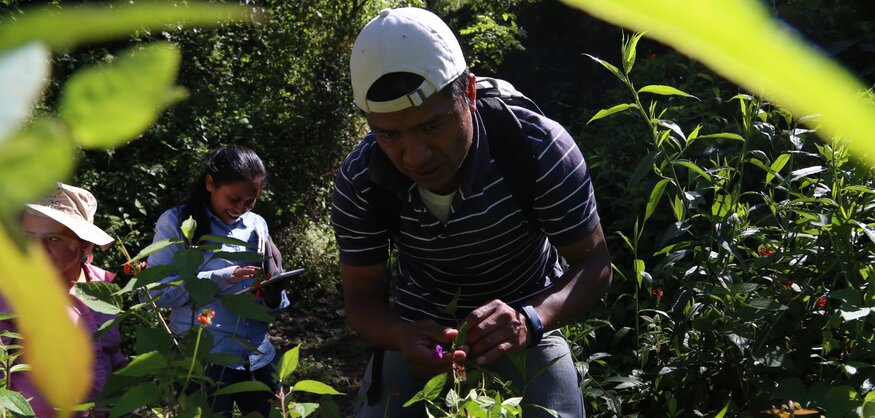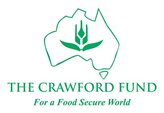Crop Wild Relatives Rescue Mission Taking Root

1 November 2016: Canberra, Australia -- As scientists from grains genebanks across 18 countries converge in Australia to discuss protecting the future of our worldwide food crops, the focus of Australian and international efforts at seed conservation and use is taking on a new target – crop wild relatives. They are to our food plants what wolves are to dogs, distant cousins of well-known food crops like rice, potato, maize and wheat, but they have not been collected and conserved in genebanks.
“Losing diversity is losing opportunities for creating a food secure future. The diversity of wild relatives of the crops we know represent a game changer for agriculture, but many of them and their habitats are under threat from urbanization, pollution, deforestation, war and climate change,” said Marie Haga, Executive Director of the Global Crop Diversity Trust.
Ms. Haga will be attending the meeting of global genebank managers and will also speak on 2 November in Canberra with Crop Trust board member, The Hon Tim Fischer, former PM of Australia and chair of the Crawford Fund to highlight the important role of crop wild relatives and the global system of genebanks in developing crops adapted to the impacts of climate change.
Other speakers are Luigi Guarino, Director of Science and Programs at the Crop Trust and Judy West, Executive Director of the Australian National Botanic Gardens. The free public event (3-5pm at CSIRO Discovery Centre, Acton) is being supported by the Crop Trust, the Crawford Fund and the Department of Foreign Affairs and Trade.
“Collecting and conserving crop wild relatives provides scientists, breeders and farmers around the world with plants that have resistance to extreme weather conditions, and diseases and pests we have never seen before,” said Ms Haga.
We know that the scraggly wild relatives of domesticated crops hold genetic diversity to help us develop more resilient crop varieties. You only have to see these crop wild relatives where they grow to know they are hardy plants withstanding drought, pests and disease. But they are missing from the world’s genebank collections.
Ms Haga explained this is why the Crop Trust, in collaboration with Kew’s Millennium Seed Bank, is leading the Adapting Agriculture to Climate Change: Collecting, Protecting and Preparing Crop Wild Relatives project, a 10-year endeavor funded by the government of Norway, with partners across the world collecting many of the most important crop wild relative species. According to the first global survey of the distribution and conservation of 1076 wild relatives of 81 crops, more than 95% are insufficiently represented in genebanks, with 29% totally missing.
“As our Vice Chair Tim Fischer has said, we badly need more collecting and more conserving, in Australia and around the world, so we can produce more with less -- less water, less fertilizer and less land,” she said.
“We have only recently recognized Australia as one of the critical regions around the world that hold the wild diversity we need for the stability of global agriculture. For example, wild relatives of rice and sorghum have been found in northern Australia,” she added.
The head of the Australian Grains Genebank, Dr Sally Norton, is hosting the meeting of global genebank managers and spends a good deal of time sowing, harvesting and storing ‘ancestoral’ seeds by hand for the Australian collection.
“The handfuls of seed that are a result of all our field efforts might not seem much, but these seeds are critical to the global effort underway protecting the future of our food crops,” Dr Norton said.
The Adapting Agriculture to Climate Change project is also ensuring the long-term conservation of crop wild relatives and facilitating breeding.
“Under this project, Australia is leading important pre-breeding work, crossing wild relatives of sorghum and alfalfa with the domesticated varieties our farmers plant across the globe”, said Luigi Guarino, Director of Science and Programs at the Crop Trust. He previously co-ordinated and managed a regional plant genetic resource network for the Pacific Island countries and territories.
“The past century has seen extraordinary changes in agricultural production. The planet’s food supply has grown increasingly dependent on only a few crops. No nation is able to feed itself by indigenous crops alone, nor can it rely solely on the crop diversity within its borders,” he said.


Categories: For The Press, Press Releases, Crop Wild Relatives
